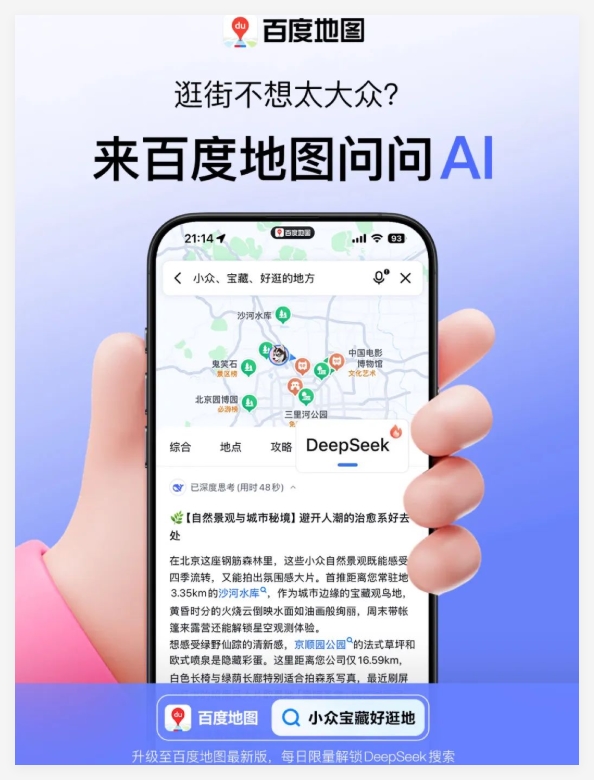With the application of DeepSeek, Baidu Maps has also completed a deep integration with DeepSeek-R1. Users can directly ask questions in the search bar, such as "What are some fun things to do in Zhengzhou?" By simply selecting the DeepSeek tag, they can receive answers that have been deeply analyzed.

These answers not only provide recommended attractions but also include relevant addresses, allowing users to click and access navigation features. This significantly enhances the efficiency of information retrieval while using the map.

It is worth mentioning that Baidu has become the second tech giant to integrate DeepSeek, following Tencent. Previously, Tencent's WeChat platform had already conducted a gray test of the DeepSeek-R1 model, aiming to compete for the entry point of AI search. As more internet giants begin to adopt DeepSeek, the way we search is quietly changing from traditional "information retrieval" to "problem-solving." For instance, in scenarios such as photo-based problem solving and complex planning, users will be able to experience smarter search results.
Traditional search engines often struggle with users' complex needs due to excessive advertisements and limitations of keyword matching, making it difficult to implement features like multi-turn dialogue and cross-modal understanding. Looking ahead, search engines may evolve into a "hybrid model," combining AI-generated answers with traditional link lists, allowing users to choose the most suitable interaction method based on their needs. However, in the long run, advancements in AI technology will inevitably replace traditional search engines, driving fundamental changes in the way we search.








